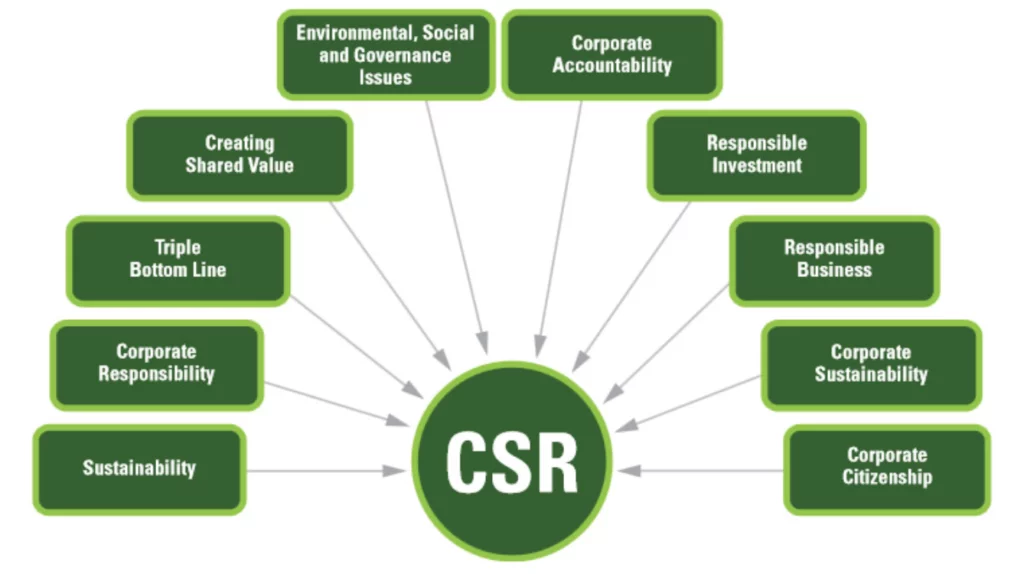CSR Meaning: All You Need to Know
CSR is a business concept that involves managing the environmental, social, and economic impact of your company. It can be beneficial for your business in many ways, including improving brand image and attracting new employees.

Companies that embrace corporate social responsibility often experience improved employee morale and higher customer trust. In addition, they attract investors and partners.
What is the Go-To Carbon Accounting Platform For Your Business?
There are many carbon accounting platforms on the market, and it can be difficult to find the right one. The key is to find a solution that will help you reduce your environmental footprint and meet emissions disclosure requirements.
The first thing to look for is the features that the platform offers. It’s also important to look at its industry track record and partnerships.
Go for a platform that has an established history in the emissions space and offers relevant partnerships and data sources that are aligned with your business’s goals. It should also have a scalable design and support enterprise-grade reporting.
Consider a platform that integrates with your accounting systems to simplify the process of collecting and reporting your carbon footprint. This can save you time and money and enable you to stand out from your competitors in the climate change arena.
enWIZI is an easy-to-use software that helps you to manage your carbon emissions in a more centralized and efficient manner. It eliminates the need for different platforms and spreadsheets, thereby improving data security and convenience. It’s ideal for any small or medium-sized businesses that have a wide range of stakeholders and are looking for a way to improve their sustainability and reporting practices.
The enVIZI platform allows you to measure your environmental footprint and assess your supply chain’s carbon emissions. You can use this data to set your targets and identify third-party risks. It also gives you access to a global portfolio of highly vetted offset projects to achieve your environmental footprint reduction goals.
What Is Corporate Social Responsibility CSR?
Corporate Social Responsibility (CSR) is a way for companies to measure and control their impact on society. It can also lead to big benefits for businesses and society as a whole.
Those benefits include increased staff retention, better customer loyalty, and more investment capital. Investors are also increasingly interested in a company’s CSR initiatives and metrics.
CSR is often divided into four broad categories: environmental impacts, ethical responsibility, philanthropic endeavors, and financial responsibilities. The key is to choose practices that align with your business and your core values see more here.
Little Story of Corporate Social Responsibility
The concept of a company doing good for the greater good isn’t new, but it has only been in recent years that companies have actually stepped up their game. There has also been a spate of high-profile disasters that have led to more responsible business practices such as hazard and safety plans, employee assistance programs, and maternity pay in the workplace. Despite these advances, it is still not always easy to get on the CSR bandwagon, particularly for those at the bottom end of the economic spectrum. The best way to start is to take a hard look at your existing business and identify areas that are underserved by both management and the public. This will help to create a road map to success that you can build upon.
Why Is CSR Important?
CSR is a powerful tool to differentiate your brand, build public trust, and inspire customer loyalty. It can help you attract new clients and boost your sales while improving your business’s overall profitability.
Consumers are increasingly more aware of the effects companies can have on the world around them, and they’re putting their trust in brands that are socially responsible. This is particularly true for millennials, who prefer to do business with companies that have pro-social messages and ethical business standards.
CSR is important because it builds public trust and creates a sense of community among consumers, both of which are necessary for business success. It also helps attract and retain employees, who tend to be happier when they work for companies that have a positive image.
What is Greenly?
Greenly is a climate tech company that provides cloud-based software that makes it easy for SMBs to track and reduce their carbon emissions. They offer a platform that automates data collection and carbon analytics and offers real-time tracking and forecasting features. It also lets businesses create personalized action plans and alternative solutions to manage their carbon footprints.
Founded in 2019, Greenly helps companies of all sizes to manage their carbon footprints to fast-track the transition to a low-carbon economy. They do this by making it simple and intuitive to measure, reduce and offset their carbon footprints, and engage their entire ecosystem in their climate journey.
They also offer a new solution called “Supplier Engagement” that gives companies the ability to analyze and lower the environmental impact of their supply chain, which accounts for up to 90 percent of their carbon footprint. It allows companies to assess the sustainability of their suppliers and identify those with the best climate performance.
You Can Strengthen Your Employer’s Brand
CSR is one of the most important factors when it comes to attracting young talent, and it can be a powerful tool in boosting your employer’s brand. The modern candidate expects to work with a company that cares about the world and the people within it, which is why it’s so important to get aligned, exposed, and engaged with your CSR initiatives.
In addition to attracting new talent, a strong employer brand can help your current employees to feel more engaged and loyal to your business. Happy, satisfied employees speak very powerfully about your company and will share their experiences with others.
Initiatives Should Reflect The Core Business Purpose
Initiatives are a great way to help your team focus on the big tasks required to achieve strategic goals. They give your team context for the work they need to do and allow you to show key stakeholders how your plan will make a difference.
Ideally, initiatives should reflect the core business purpose of your company. Determining this core can help you avoid side projects and distractions that cost time, and money and disrupt your ability to compete in the market.
There are many types of initiatives, ranging from corrective to constructive and innovative. Some of these include resolving a specific problem within your organization and introducing new approaches, methods, or directions. Some are defensive, aimed at maintaining your existing advantages or defending against competitors.
This article has been published in accordance with Socialnomics’ disclosure policy.









